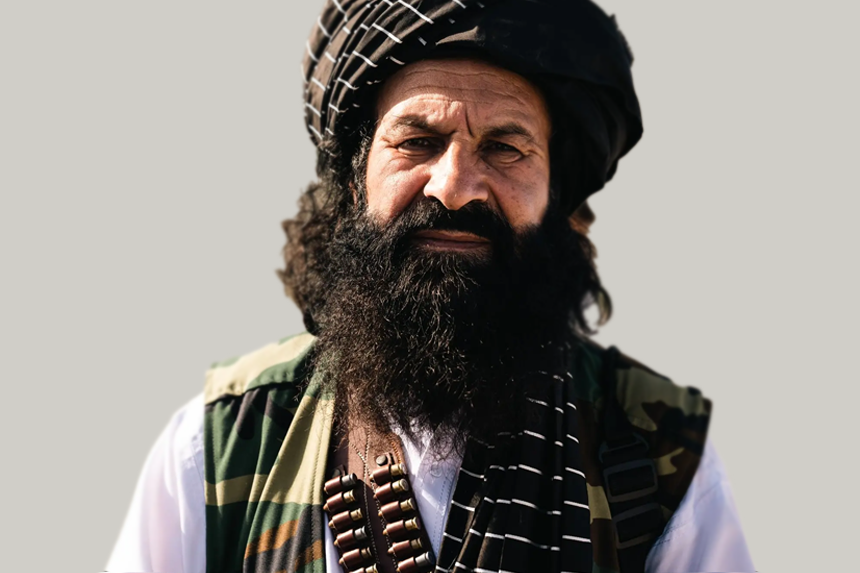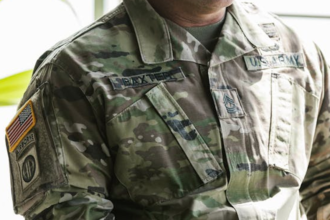Kabul — On December 12, a suicide explosion inside Khalil Haqqani’s ministry in Kabul killed the well-known Taliban minister and essential member of the Haqqani network. The assault, which also claimed the lives of six other people, is the most notable loss to the Taliban’s leadership since their 2021 comeback to power in Afghanistan.
- Who Were the Victims, and What Happened During the Attack?
- Who Was in Charge of the Attack?
- What Was the Function of Khalil Haqqani in the Taliban?
- What Effect Does the Death of Khalil Haqqani Have on the Taliban Leadership and Haqqani Family?
- What Security Issues Does Taliban Rule Still Present in Afghanistan?
- Why Does Afghanistan Remain Divided Even Under Taliban Rule?
Who Were the Victims, and What Happened During the Attack?
Haqqani was leaving his Ministry of Refugees and Repatriations office when the fatal explosion happened. According to authorities in the interior ministry, a suicide bomber was responsible for the blast. “The bomb went off as Khalil Haqqani was leaving his office. He and a number of others were murdered quickly,” an official added. The attack has startled the nation, but it has also brought attention to Afghanistan’s ongoing security issues under Taliban control.
Who Was in Charge of the Attack?
The Islamic State group (IS) has taken credit for the incident; Islamic State Khorasan Province (ISKP), their regional affiliate, claims that one of its militants was behind the bombing. A jihadist had waited outside Haqqani’s office and set off explosives as the minister left, according to a statement released by IS’s “news agency” Amaq. The statement said, “An ISKP member targeted Khalil Haqqani as he left his ministry building.”
Following confirmation of the death, a Taliban spokesman said, “The attack was carried out by the Islamic State, and we mourn the loss of our brother, Khalil Haqqani.”
What Was the Function of Khalil Haqqani in the Taliban?
One of the most influential groups within the Taliban was the Haqqani network, of which Khalil Haqqani was a leading member. Throughout the Taliban’s 20-year war, his network has been connected to multiple attacks against Afghan and foreign forces. The United States had long classified Haqqani as a global terrorist and a senior member of the Taliban regime.
“Khalil Haqqani’s role in the Haqqani network and his influence within the Taliban cannot be overstated,” according to an Afghan analyst. “His death is a significant blow to the Taliban’s internal structure, especially at a time when their leadership is still consolidating power.”
What Effect Does the Death of Khalil Haqqani Have on the Taliban Leadership and Haqqani Family?
Khalil Haqqani’s passing also illuminates the family’s heritage. During the Afghan-Soviet War in the 1980s, his brother, Jalaluddin Haqqani, was a well-known guerilla leader who engaged Soviet soldiers. The Haqqani network, which Jalaluddin established, is still a powerful influence on the Taliban. One of the most influential people in the Taliban now is his son, Sirajuddin Haqani, who serves as the government’s interior minister.
Given his uncle’s passing, “Sirajuddin has been the architect of many of the Taliban’s strategic decisions, and his position may now be under scrutiny,” a political analyst stationed in Kabul observed. “The Haqqani family has always been crucial to the Taliban’s success.”
What Security Issues Does Taliban Rule Still Present in Afghanistan?
Bombings and suicide strikes are still frequent throughout the nation, despite initial assertions of increased security following the Taliban’s restoration to power in 2021 after the withdrawal of Western soldiers. The Islamic State Khorasan Province (ISKP), the regional branch of the international Islamic State organization, has claimed responsibility for the majority of these attacks, which have not decreased in frequency.
A former Afghan government official says, “This is a sign that the security situation in Afghanistan is far from stable.” “The Taliban’s control has not quelled the violence, and with groups like ISKP active, more such attacks could follow.”
Why Does Afghanistan Remain Divided Even Under Taliban Rule?
The Taliban’s fight against rival militant organizations like the ISKP is getting more intense as they continue to rule Afghanistan. Even while the Taliban’s leadership has openly denied any internal strife, events such as Haqqani’s murder highlight how difficult it is to keep power in a nation where sectarian and ideological tensions are every day.
An international official with knowledge of Afghanistan’s security situation stated, “Today’s attack is not just an assault on one person, but an attack on the Taliban’s authority and their ability to secure the country.” “The ISKP’s claim of responsibility indicates a new chapter in the conflict.”
The passing of Khalil Haqqani is a tragic reminder of how unstable the situation is in Afghanistan, where, despite the Taliban’s assertions of stability, peace is still elusive.








